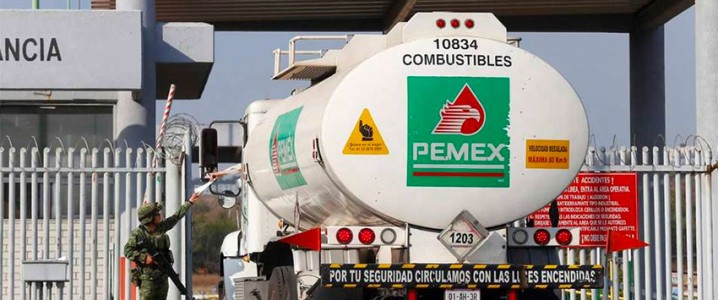Mexico’s Finance Ministry announced Tuesday it will launch a new financial operation to support the country’s embattled state oil company, Pemex—the most indebted energy firm in the world.
The operation involves issuing “Pre-Capitalized Notes,” a form of financing designed to strengthen Pemex’s balance sheet without a direct government guarantee. The plan—part of an ongoing effort to prop up a company mired in debt, production decline, and operational dysfunction—is noticeably short on specifics.
Pemex reported a $2 billion loss in Q1 2025, following a $9.1 billion loss in Q4 2024. Crude production has fallen to 1.58 million barrels per day—well below the government’s 1.8 million bpd target. Exports have collapsed too, plunging 44% in January to their lowest levels since 1990. The company has responded by slashing 3,000 jobs, restructuring its leadership, and announcing plans to reopen thousands of idle wells—efforts that require capital it doesn’t have.
Meanwhile, Pemex is juggling more than $105 billion in financial debt and over $20 billion in unpaid supplier bills. Refining output has stagnated, and issues with crude quality—including high water content—have alienated key buyers. Despite a 2024 cash infusion from the federal government, Pemex’s working capital remains deeply negative.
The use of Pre-Capitalized Notes appears to be a way to inject liquidity without triggering broader credit concerns or formal bailouts. But the underlying issue remains: Pemex’s financial health depends heavily on political will. Past interventions have come with the quiet backing of Wall Street banks and oilfield service giants like SLB, which issued over $1 billion in credit-default swaps last year to keep Pemex solvent.
With production declining and global energy markets shifting, Mexico’s latest move may buy Pemex time—but without structural reform or a credible path to profitability, it’s just another patch on a cracking hull.
By Julianne Geiger for Oilprice.com
More Top Reads From Oilprice.com

